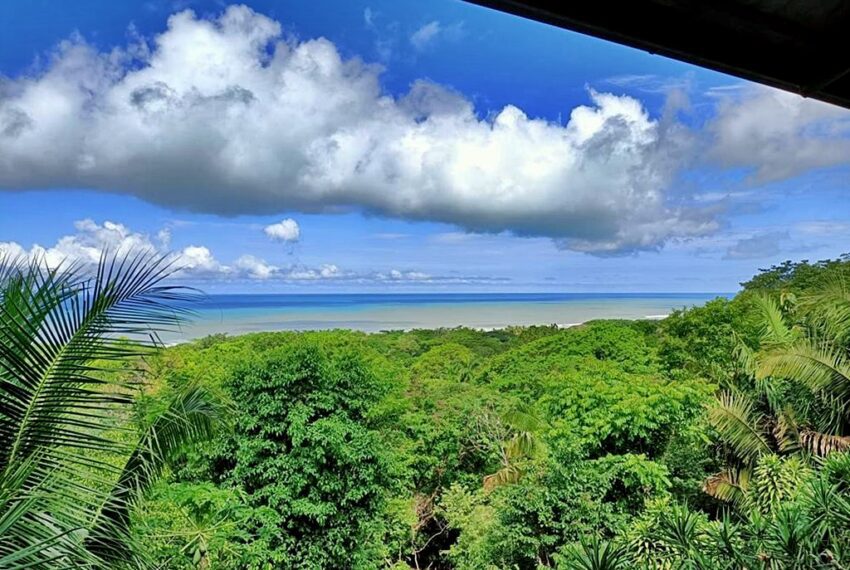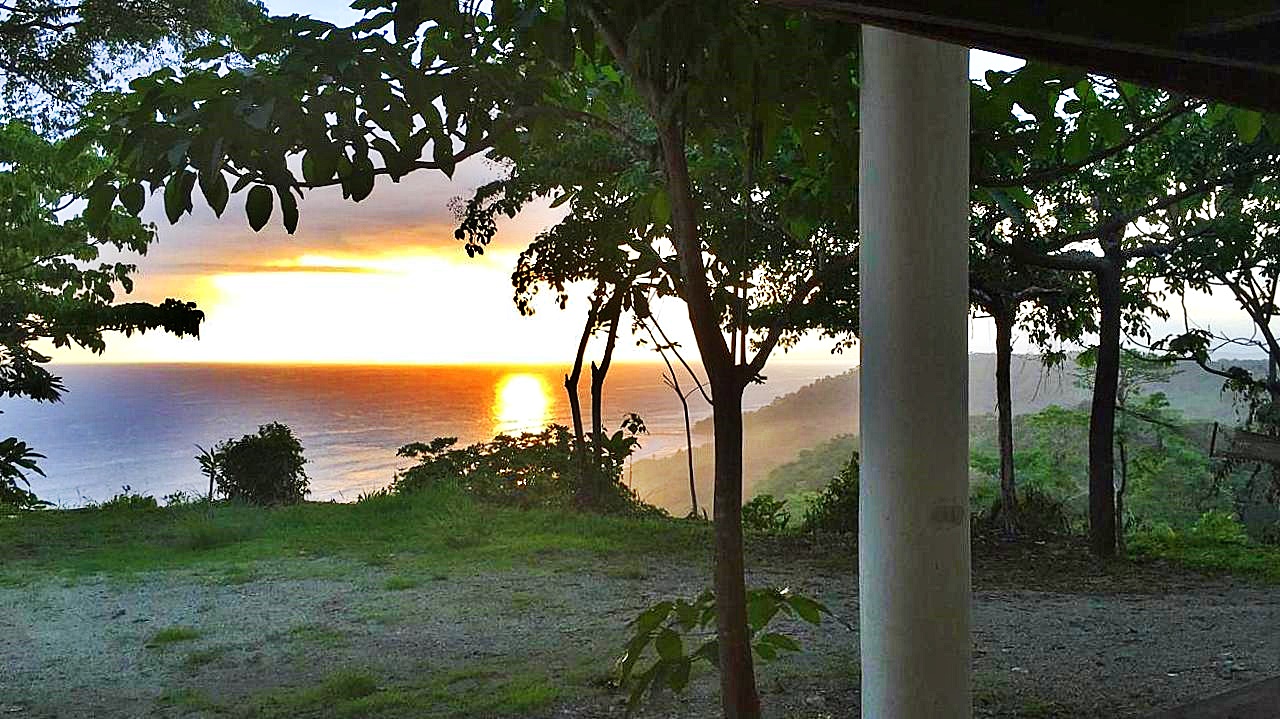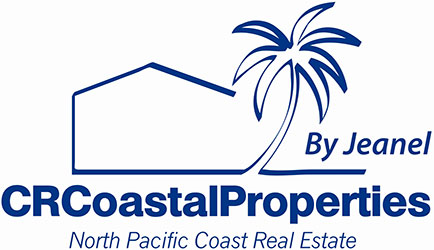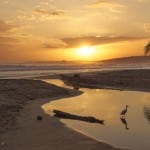
Investing in Costa Rica
Investing in Costa Rica
Costa Rica famous for its amazing beaches, flora and fauna, volcanoes, and jungles has become over the years a very popular destination for retirees, new business ventures, and families looking for a lifestyle change. If you are looking to retire, thinking about relocating for a business venture or simply wanting a change of lifestyle this article is for you.
Foreigners buying property in Costa Rica have the same rights as locals do and the overall buying experience is not a complicated process. The most valuable piece of information to obtain when buying real estate in Costa Rica is to make sure you do your due diligence and select an experienced realtor. Due to the popularity of buying property in Costa Rica many real estate offices have popped up all over the Coast of Costa Rica. Here at CR Coastal Properties, we have over 20+ years of experience of buying and selling real estate. Feel free to inquire without any obligation!
Steps to Purchasing Property in Costa Rica
Foreigners are allowed to purchase property in Costa Rica in their own name or in a corporation name. It is usually recommended to acquire a property through a corporation or an LLC (limited liability corporation). This is a common practice that protects the home and property from any individual liability. You can buy titled property without restrictions- except for concession land along the beaches, which do have certain restrictions. A property that is over $200K will qualify an investor for Costa Rican Residency. Being a resident of Costa Rica makes it easier to move through the system and you won’t have to leave the country every 90 days for a visa run!
Location is key and the first thing you should decide upon is where you would like to live in Costa Rica. There are many different factors that can help to make your decision such as the type of property, the price range, and the weather. Do you prefer a warmer climate, mountain climate, less rain? If so the Nicoya Peninsula is known for warmer weather and has more sunshine than rain! If looking for a cooler climate the mountainous area outside of San Jose such as Monteverde, or Arenal would be a good choice. It is a good idea to define your preference between the coast, city, or mountain. If living close to a city and having access to malls, schools, and hospitals then look just outside or inside San Jose. If you enjoy the jungle, surfing, and more solitude then the coastal areas would be perfect. When choosing your location it is a good idea to investigate the safety in the area. Check around the community and ask if it is safe to walk at night with your valuables in hand. Talk to the locals and shop owners in town. It is a good idea to look around the area before you buy to see what is going on with real estate development. Just remember there are many great climates and locations to choose from in Costa Rica, so make sure you take your time and do your research correctly before choosing a place to live.
There are many types of properties you can buy such as inside gated communities, individual residences, lots to build upon, beachfront, commercial property, etc. Beachfront land is deemed in the Maritime Zone and is Concession Property. The maritime zone is comprised by two sections, the public zone (which occupies the first fifty meters which are of public domain) and the restricted zone (which occupies the remaining one hundred fifty meters and can be possessed by means of a concession granted by the local Municipality and ratified by the Costa Rica Tourism Board.) Concessions are renewed every twenty years. It is very important to contact an experienced lawyer in Maritime law. There are restrictions in place regarding foreigners investing in maritime land. Concession land is very valuable and it usually pays higher taxes.
If you are purchasing a vacant lot it is good to do a soil test. Knowing the soil conditions of your lot is important for many things! A soil test will help determine the soil density and its capacity for load-bearing as well as information for your septic system. In the Nicoya Peninsula, many ocean view lots have been cut from the mountain but some have also been landfilled. It is important to know for erosion purposes and for building a home.
Check to see if your utilities are close by. Many properties for sale do not have local water. Today building permits require a legal source of water. If there is not a water meter on the property then you need to check if there is well. Having a perforated well on the property but without its concession will not allow you to get a building permit. It is very important to research the legality of water on the property. If it is a drilled well you will need to make sure and ask to see the paperwork on the well and if it has been registered with the government.
We recommend getting a new surveyors map before buying a property. Even if there is an existing map it is in your best interest to get a new one and have the topographer locate the boundaries of the property. Ask your real estate agent to recommend a surveyor and preferable not the same surveyor that the seller has used. Properties that are more than one hectare and have irregular topography might have differences in size and wrong boundaries. Many times if a seller has not been in Costa Rica and the land has been vacated, an existing neighbor could easily move their fence lines onto the property you are looking to buy. So make sure to know the boundaries you are buying! It is also a good idea to know if there are setbacks on the property. If you are buying land with a river or creek on the property it is best to check and see what the setbacks are from the river for building as there are laws that require a certain distance from the water source.

If you are buying vacant land in a rural area you must beware of squatters! A squatter is a person who unlawfully occupies an uninhabited building or unused land. This typically occurs when no one is staying on the property and it appears abandoned. It is necessary to keep your property cleaned, fenced, and stay on top of paying your property taxes.
It is very important to know the zoning of the property. If you want to build a bed and breakfast with a gorgeous ocean view and the property is located on an easement and not touching a public road then you are only allowed residential use. Residential properties are allowed a build-out of 15% of the total meters square along with one single-family dwelling home, pool, and caretaker house. Commercial properties are allowed 75% build-out and multiple buildings are allowed and to run as a commercial identity. Ask your realtor to request at the local municipality for a “Uso de Suelo” from the municipality’s engineering department. This will tell you all about the restrictions, density, potential and options for subdividing the property.
You may ask is it safe to buy property in Costa Rica? In general Costa Rica’s political and economic climate is stable and makes it an attractive country to invest in. No matter where you are throughout the world there is always the possibility that someone will want to take advantage of the buyer. It happens everywhere and therefore it is of utmost importance that you get a reputable real estate agent and real estate attorney who is also a notary to help you through the process so that you do not get scammed! Make sure your lawyer checks to make sure the land is titled. Titles are registered and centralized at the offices of the Public Register in San Jose.
The first step in buying real estate is to surround yourself with professionals. Once a decision has been made on the property your agent will write an Option to Purchase Agreement for you to sign. The offer will then be presented to the seller, and the offer will either be accepted or negotiations will ensue. Once the buyer and the seller have come to an agreement and have signed the contract a 5%-10% deposit is expected to take the property off the market. All funds should be deposited in a government-registered escrow account such as Stewart Title. The earnest money deposit is typically sent within 5 to 10 business days once the contract has been signed. Closing usually takes place anywhere from 30 to 60 days once the contract has been signed by both parties.
The usual fees for closing include the lawyers’ fee which is typically 1.25% of the sales price plus 2.85% in transfer taxes and a corporation can cost anywhere from $500-$1000. Annual property taxes are 0.25%.
In order to borrow funds in Costa Rica, you must be a resident. If funds are needed for the purchase it is recommended to borrow in your home country. Occasionally, sellers will owner finance but usually request 50% down, a three-year term and current interest rate that the local banks offer. If you are looking for owner financing you limit your options. Seeking owner-financing limits negotiating a price and your selection of homes. However, it is not impossible and can be a good situation for both the buyer and the seller.
Once you are a property owner in Costa Rica make sure to follow up with your lawyer and realtor that your property has been registered under your name or corporation. You as well can check in the public registry to confirm the property has been transferred into your name. Make sure to keep copies of all legal documents and if you opened a corporation keep your books in a very safe place. Speak with your local insurance agent to ensure your home and protect it from natural occurrences such as flooding, earthquake or fire. If you purchased land make sure to protect it from squatters by hiring either a property manager or someone to take care of the property if you will not be living in Costa Rica full time.
BLUE ZONE
Costa Rica is a great place to live. There are so many beautiful places to see and discover throughout all of Costa Rica. It is a growing country and a diverse melting pot, which allows you to meet people from all over the world. The Tico’s themselves are lovely people and in general, have big hearts and warm friendly smiles. If you end up buying in the Nicoya Peninsula you will have purchased in one of the five regions in the world referred to as a “Blue Zone”. People who live in a blue zone are some of the oldest and healthiest people in the world. Residents of a blue zone typically surpass the average life expectancy of 71 years. Costa Ricans, living in the blue zone have lived to pass the age of 100 and are generally fit active people. It is not uncommon to find an 85-year-old man with a machete in hand and working a full day out in his corn crop.
The diets of Blue Zone residents are mainly plant-based. Finding Mc Donald’s on every corner will not happen out here. The Costa Rican Casado (marriage of rice and beans) is very popular among the Costa Ricans. A Casado consists of rice, beans, vegetables, salad and a small portion of beef, chicken, or fish. Homemade corn tortillas are still cooked in a traditional way and the water on the Nicoya has a higher concentration of calcium and magnesium than in other parts of the country. Avoiding processed foods and eating a healthy diet has promoted and continues to give Costa Ricans in the blue zone longer lives and overall healthier living!
If you end up buying in a blue zone or not, having a property in Costa Rica can be a fun and exciting adventure. You choose how and where you want to live in this beautiful country and we hope you find the magic of Costa Rica and its people like we have!



